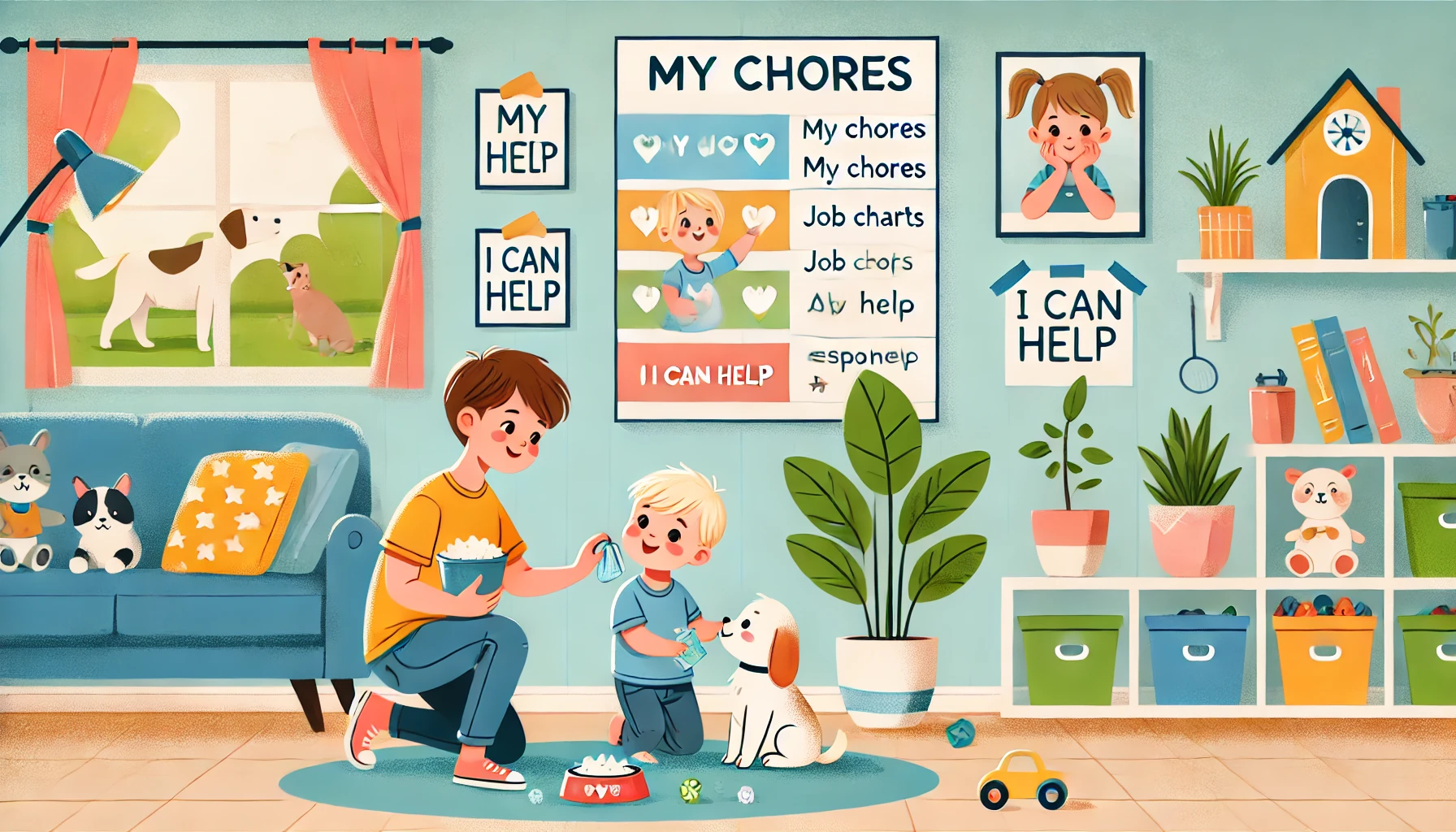Responsibility is more than completing tasks—it’s about building trust, independence, and care for self and others. Young children naturally want to help and feel important. When we teach responsibility through age-appropriate routines, conversations, and encouragement, they develop a sense of ownership that boosts their self-esteem and supports their lifelong success.
Why Responsibility Is an Important Life Skill
- Builds confidence and independence
- Encourages accountability and honesty
- Fosters care for others and the environment
- Develops decision-making and planning skills
- Prepares children for school and community life
1. Explain What Responsibility Means in Simple Terms
Start with clear, relatable definitions.
Activity Idea:
- Say: “Being responsible means doing what needs to be done and taking care of your things.”
- Use examples: “Putting toys away after playtime is being responsible.”
- Ask: “What do you take care of at home?”
What Kids Learn:
- That responsibility is about actions and choices.
- How they can make a difference, even in small ways.
- That they are trusted and capable.
2. Give Them Small Jobs to Own
Tasks that feel “theirs” help children practice follow-through.
Activity Idea:
- Assign simple chores like feeding a pet, watering plants, or setting the table.
- Let them decorate a “My Job” chart with pictures or stickers.
- Start with one consistent task they can master.
What Kids Learn:
- Pride in completing a job independently.
- How to stick with tasks.
- The value of contributing to the family or classroom.
3. Create Routines That Include Responsibility
Structure builds habits.
Activity Idea:
- Set a morning routine: get dressed, brush teeth, pack bag.
- Add visual checklists to help them remember steps.
- Celebrate when they complete their routine without reminders.
What Kids Learn:
- That responsibility is part of everyday life.
- How to be more self-sufficient.
- That organization feels good.
4. Let Them Make Choices and Face Consequences
Real-life practice helps responsibility grow.
Activity Idea:
- Offer limited choices: “Do you want to clean up now or in five minutes?”
- If they forget something, guide reflection: “What can we do differently tomorrow?”
- Avoid punishment—instead, focus on learning from the moment.
What Kids Learn:
- That actions have outcomes.
- How to think ahead and plan.
- That responsibility includes fixing mistakes.
5. Use Praise That Focuses on Responsibility
Recognize actions, not just results.
Activity Idea:
- Say: “You remembered to feed the dog—that was responsible!”
- Avoid over-rewarding; keep praise sincere and specific.
- Reflect together: “How did it feel to do that by yourself?”
What Kids Learn:
- That responsibility is noticed and appreciated.
- How internal motivation develops.
- That success comes from consistent effort.
6. Talk About Mistakes as Learning Moments
Responsibility also means owning up when things go wrong.
Activity Idea:
- Say: “Everyone makes mistakes. What can we do to fix this?”
- Model accountability: “I forgot something today too. Let’s find a solution.”
- Help them problem-solve instead of blame.
What Kids Learn:
- That honesty is part of being responsible.
- How to repair and grow.
- That mistakes are part of learning.
7. Model Responsible Behavior
Children learn most from what they see.
Activity Idea:
- Narrate your tasks: “I’m finishing the laundry so we have clean clothes tomorrow.”
- Show care for the environment: recycle, turn off lights, water plants.
- Follow through on promises, even small ones.
What Kids Learn:
- That adults take responsibility too.
- How to be reliable and thoughtful.
- That consistency builds trust.
8. Celebrate Responsibility as a Family Value
Make it part of your family or classroom culture.
Activity Idea:
- Hold a “Responsibility Day” where everyone picks a special task to help with.
- Use family meetings to reflect: “What did we do well this week?”
- Create a “Responsibility Wall” to display jobs well done.
What Kids Learn:
- That they’re an important member of the group.
- How shared responsibility makes life smoother.
- That teamwork and ownership go hand in hand.
Final Thoughts
Teaching responsibility to young children builds skills they’ll use for life. With patience, praise, and daily practice, children learn to follow through, take pride in their actions, and contribute meaningfully to their families and communities. Responsibility isn’t just a task—it’s a mindset of care, courage, and confidence.
